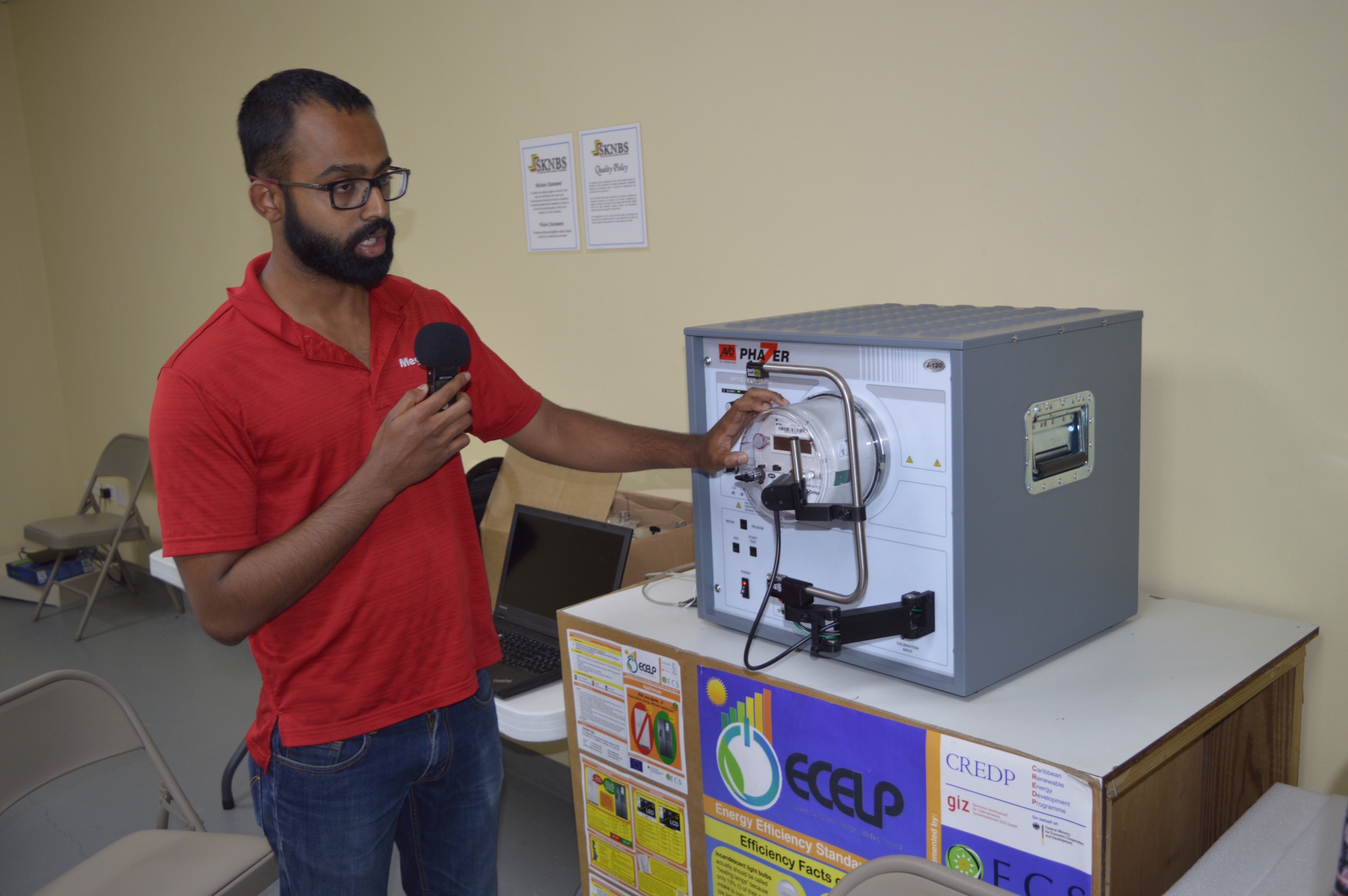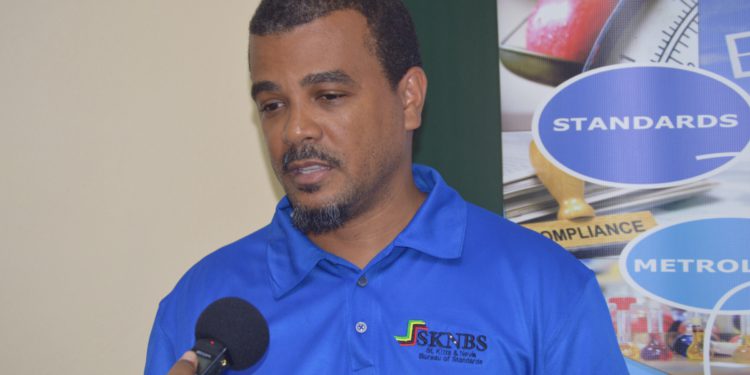Basseterre, St. Kitts, August 24, 2018 (SKNIS): The St. Kitts and Nevis Bureau of Standards (SKNBS) is adding verification of meters to its list of services, says I-Ron Audain, Chemist and Head of Metrology at SKNBS, adding that this new verification process with benefit both consumers and utility providers.
SKNBS, under the Metrology Act of 2012, conducts verification of fuel pumps and supermarket scales. The addition of this new verification service is part of the Bureau of Standards mandate to protect the consumer and under the 2012 Act where the bureau verifies all measurement devices within the Federation of St. Kitts and Nevis.
On Monday, August 20, SKNBS held a one day workshop to commission the new equipment that will aid in the verification of household electrical meters.
“It’s a project that we have been working on for quite some time now,” said Mr. Audain. “The equipment is bought for and paid for by the Government of St. Kitts and Nevis.”
The St. Kitts Electricity Company (SKELEC), the Nevis Electricity Company (NEVELC) and the Consumer Affairs Department were all present at Monday’s training session.
“We basically commissioned the equipment so that in the very near future we would be able to offer the service to the general public when they have complaints pertaining to their electrical meters,” said Mr. Audain.
The chemist and head of metrology noted the importance of having this new equipment.
“The importance is that most of our economies are based on energy; we use energy in the manufacturing sector; we use energy to power everything so there has to be a third party, which is in this case the SKNBS, that could reassure customers that if they pay for one kilowatt of power, they are actually getting a kilowatt of power,” he said.
The new equipment is an AVO Phazer from Megger, says Sanket Bolar, Megger Technician, who was also the facilitator of the workshop.
The tester is used to verify whether the meter is accurately measuring energy and accurately recording them.
“So, if a meter is inaccurate it is a problem for both the consumer and the utility,” he said. “If the meter records less energy, then the utility is not making enough money. They are not getting the money for the energy that they are providing. If the meter records more energy, then the consumer is paying more than what they should be paying. It is a problem for both consumers and utilities to have. That is why it is important that the meters that are installed by the utility be accurate.”
According to Mr. Bolar, the stakeholders were impressed with the new equipment.
“They were impressed by what they saw. We tested different types of meters that they would use. They could see that it is quite easy to use and provides results. So, whatever they need from a report, they could see that on the screen,” he said.
The megger technician added that they were also impressed by the ease of use and that the test could be completed within a relatively short period of time.
Mr. Bolar said that the stakeholders were also enthused that the equipment will not only benefit the utility but the consumer.
“They would have that protection to ensure that the energy being produced and being consumed by the consumer is accurate and the utility can be assured that they are not losing on that end. So it’s a level playing field,” he said.










